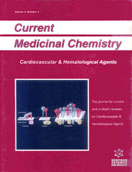Abstract
Limitations in study designs and adoption of rigid criteria for randomization in clinical trials on acute myocardial infarction (AMI) may result in the enrolment of artificial populations, and subsequent trial results may be misleading in many ways rendering problematic the generalization of the trial results to a “real world population” of AMI. Furthermore, the “frequentist” approach in study designs with inclusion of thousands of low-risk patients and high statistical inference have produced inconclusive or negative results despite the high potential for a strong impact on outcome of the study drug, or device, or strategy. The investigative approaches to the use of IIb/IIIa inhibitors as adjunctive treatment to primary coronary intervention (PCI) for AMI are a clear instance of this crucial problem in the evidence-based medicine era. Five concluded randomized trials comparing abciximab with placebo in patients undergoing primary PCI for AMI have produced different and conflicting results with a broad spectrum of possibilities. No benefit of the drug in patients receiving infarct artery stenting, benefit of the drug only in patients undergoing conventional balloon angioplasty with provisional stenting and limited to the early phase, and mainly driven by the decrease in the need for urgent target vessel revascularization, benefit in terms of decreased mortality, reinfarction and target vessel revascularization at 1-month but not maintained at 6 months, long-term benefit in the composite of death, reinfarction and target vessel revascularization, improved early and late outcome including long-term survival. This review of the trials of abciximab and other IIb/IIIa inhibitors in patients undergoing PCI for AMI tries to put the studies and their results into a proper perspective for the correct use of adjunctive IIb/IIIa inhibitor use in patients with AMI.
Keywords: acute myocardial infarction, IIb/IIIa inhibitors, coronary stenting
 2
2











